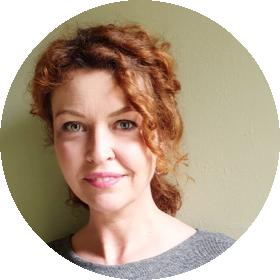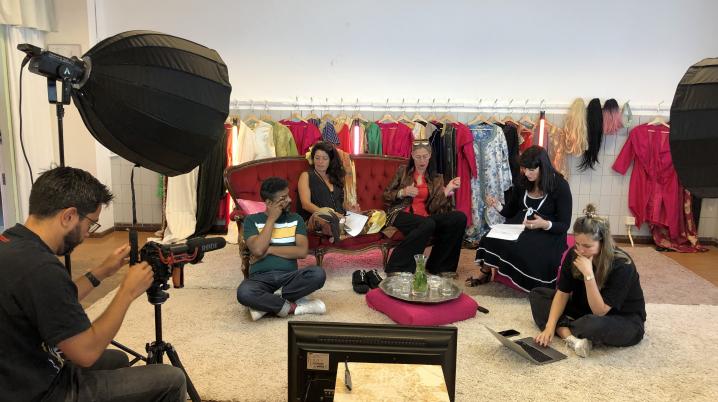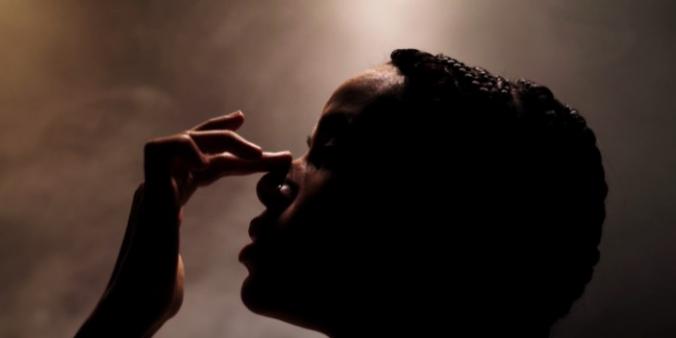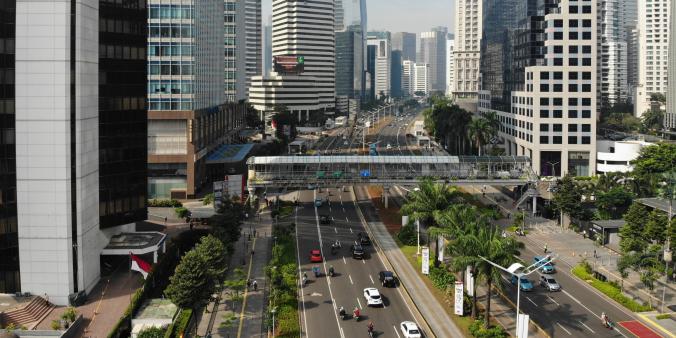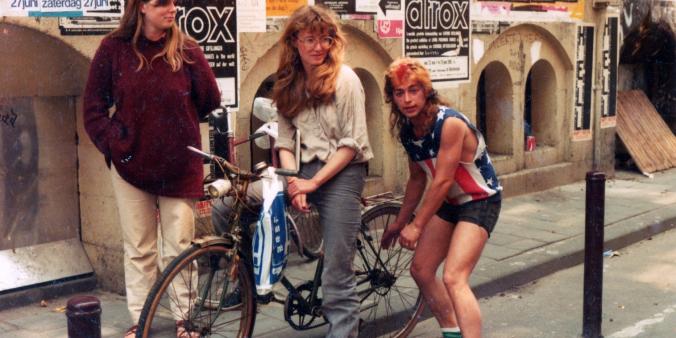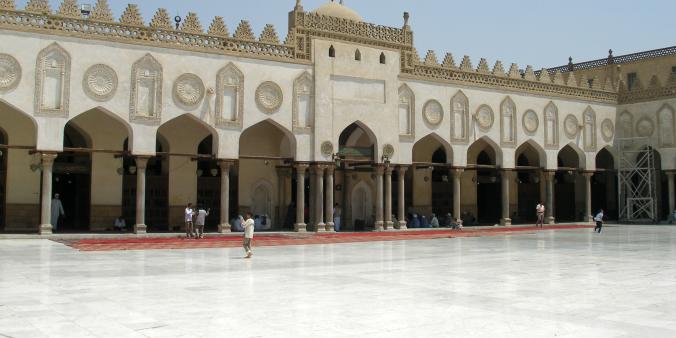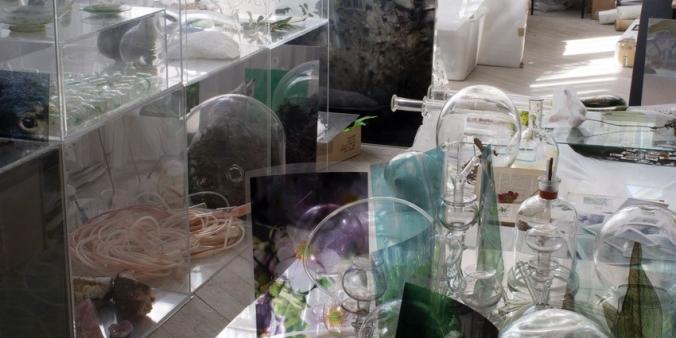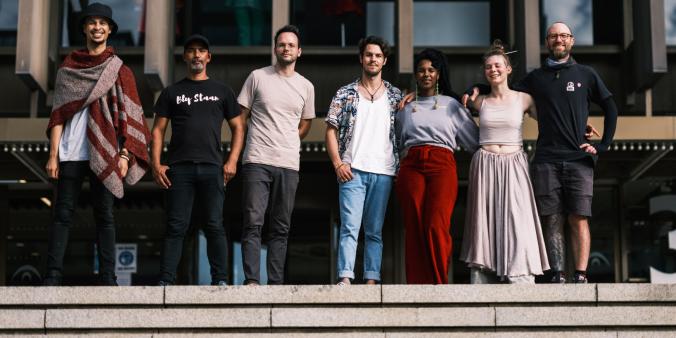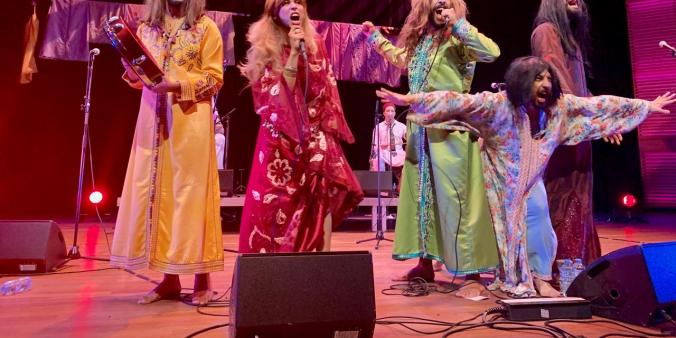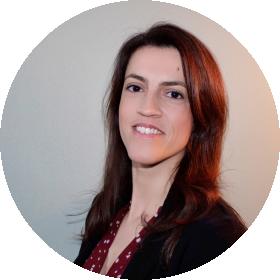
In June 2021, DutchCulture launched a new programme: Artists in Conversation. The aim was to organise dialogues between artists of different nationalities, to explore their perspectives on the cultural climate they’re working in. Although dialogues about for instance shared cultural heritage have been going on for years, the perspectives of individual contemporary artists and cultural professionals form a valuable addition. By offering them the opportunity to engage with each other, we can find out more about their backgrounds and practices, as well as about general artistic, political and societal tendencies in their countries.
Since then we organised 9 editions featuring 38 artists, writers, curators and other art professionals from different countries and all corners of the globe. In this article, we reflect on what we learned from them, the themes that recurred and how the format of the programme evolved. We also highlight some beautiful contributions.
Pilot period
Halfway through the second year of the pandemic, Artists in Conversation started off as a broadcast series, bringing together artists, curators and journalists at different geographical locations in an online space. The idea was to feature a dialogue between an artist from the Netherlands and one from another country in each edition. We also invited writers and thinkers to reflect on the cultural climate in their country just after the first wave(s) of the pandemic.
The format evolved over time, depending on the nature of the contributions and wishes of the guest speakers and moderators. The first three pilot editions focused on Egypt, Australia and Hungary. During this period, we learned how an online conversation can really flow when two experts from different countries get the opportunity to talk about current themes in their discipline. A perfect example is the dialogue between Egyptian architect and urban planner Omar Nagati and architectural historian Michelle Provoost, who were already familiar with each other’s working environment.
Nagati and Provoost talked about the underlying structures of chaotic urban spaces and the risks and benefits of approaching a historic city centre as an open-air museum, and how to engage city communities in Cairo and Rotterdam. It resulted in an inspiring discussion. Even in a short amount of time, they succeeded in finding common ground in their own daily practices, and in urbanism in North Africa and West Europe more generally.
Highlight: Nardi Simpson’s essay
The online format of the series was also a perfect way to engage with Australian artists. The programme’s intimate setting and the guests’ personal engagement more than made up for the gap between the time zones and physical distance. The essayistic performance by indigenous Yuwaalaraay storyteller Nardi Simpson – which she composed specially for our programme – was one to remember. In this very personal piece, she reflected on the language, complex history and communities in her homeland of North-West Australia, addressing concepts of movement and change like withdrawal, survival and renewal.
To describe the Australian cultural climate, the word that comes to Simpson’s mind is ‘dreaming’. She explains: ”We, as aboriginal people, understand it as the time of creation. Past, present and future are all wrapped up in the same time. Dreaming is wishing for something that is maybe unattainable, but it is incredibly important in how we move. So maybe dreaming works for both black and white Australians.”
Simpson’s disire to raise attention for Australia’s first inhabitants’ perspective fits with a broader movement in the arts and culture sector in her country. This tendency goes hand in hand with the realisation that the relationship between humans and nature needs to change. The other two conversations in this edition – with artists Maria Verstappen (NL), Janet Laurence (AUS), Brian Elstak (NL), Richard Bell (AUS), and Emma Fielden (AUS) – also evolved around heritage and sustainability, environment and fair practice, which are all important themes in art and heritage policies in the Netherlands as well.
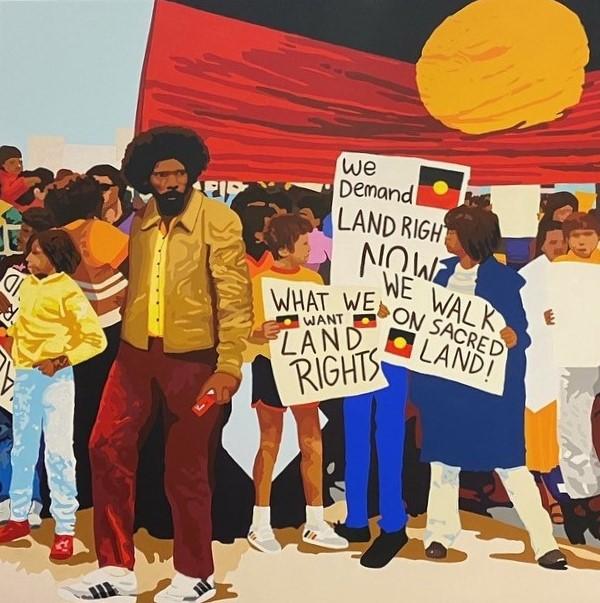
Focal countries
The year 2021 marked the start of a new period of the International Cultural Policy in the Netherlands. The current policy concentrates on 23 focal countries, including the new countries Poland and Hungary. Recent political and social histories in both states are complex and sometimes provocative, like the passing of anti-LHBTI+ laws in the Hungarian parliament. These developments evidently influence the cultural and artistic climate, which is all the more reason to keep the dialogue going with Polish and Hungarian creatives and researchers.
Hungary was therefore one of the first three countries featured in Artists in Conversation. In this edition, the dialogues evolved around issues of national symbols, the representation of Roma culture, and feminist perspectives. Linda Malherbe (director of Story House Belvédère) and András Török (Fortepan manager) discussed the purpose of the photo archives and the beauty of photos of everyday people.
New year, new series
This year, nearly one year after the Artists in Conversation edition featuring Hungary, we created a new series of events called Country Focus. The aim of this new programme is to probe more deeply into specific themes and cultural tendencies in each country. Whereas the Artists in Conversation series is mainly meant as an opportunity to meet and make new connections, the Country Focus events are more in-depth. The edition entitled Country Focus: Hungary – Art in an illiberal state took live place at the Goethe Institute in Amsterdam.
It’s not without reason that Hungary and Poland both featured first in this new series. Our Hungary and Poland Advisor Tijana Stepanovic was happy to be able to create a safe space for everyone to speak out about sometimes sensitive topics, during this live event. This way, keynote speaker Gergely Nagy was able to sketch the political, legislative and bureaucratic processes that have shaped the cultural sector in Hungary in the past few years.
András Török is featured in this edition again. He had travelled to the Netherlands to participate in our visitors programme for Hungarian art professionals about archiving. The trip included a visit to the Story House Belvédère, where Török and Malherbe finally met in person and could continue the conversation they had online a year before.
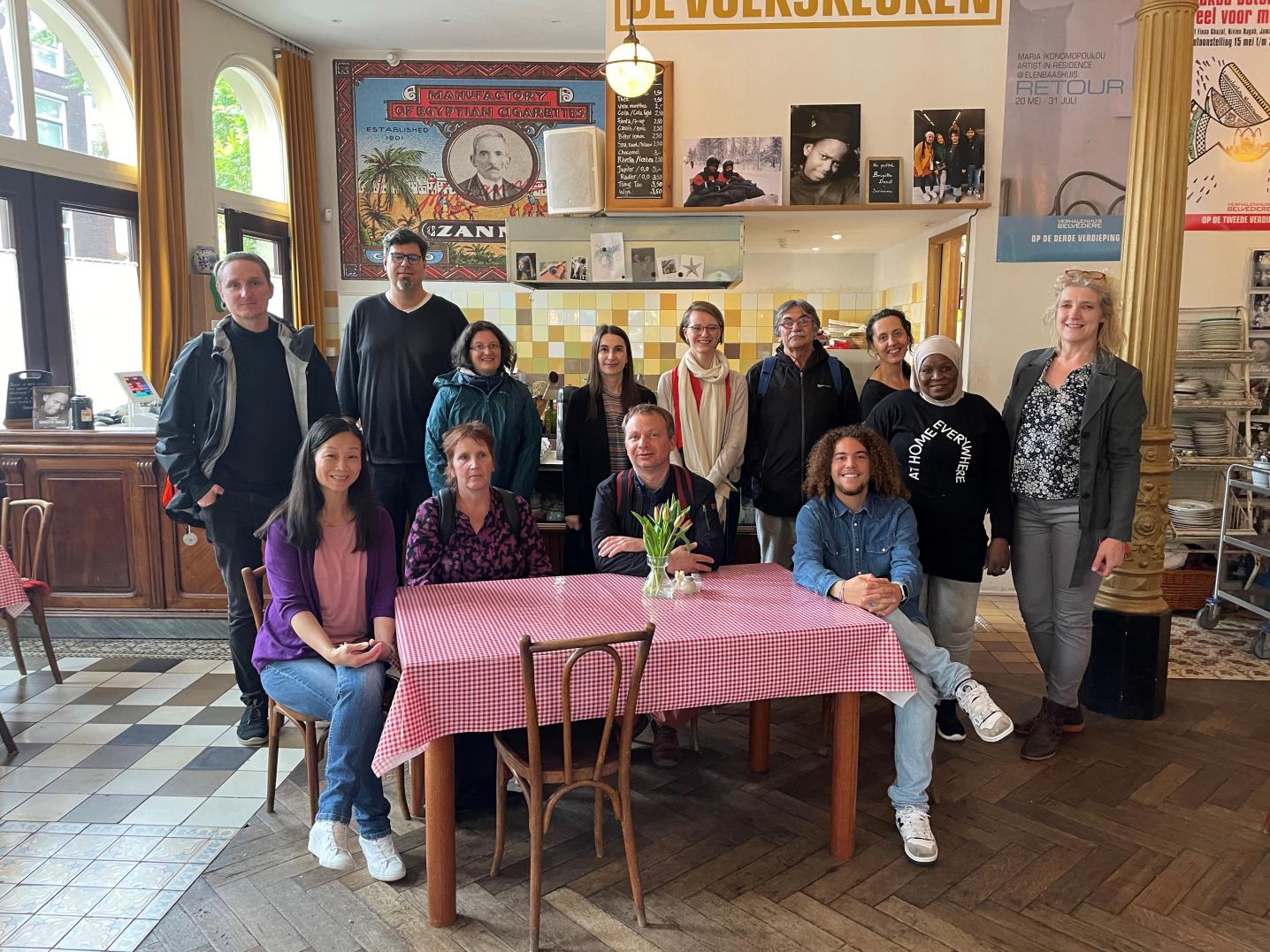
Realising how enormous the influence is of current political and societal developments on the arts and culture in Poland, we titled the Polish edition Far too many stories to fit into so short a programme. This refers to the project Far too many stories to fit into so small a box by our guest artist duo Bik Van der Pol. They created it during their residency in Poland in 2019 at one of Warsaw’s most important and well-known art centres, the Ujazdowski Castle Centre for Contemporary Art.
Since this residency programme has been cancelled from the funding scheme by the Polish government, it is no longer possible for Dutch artists to stay there. The cancellation of funding and sudden removal of directors from art institutions are all symptoms of the same political system that limits artistic freedom and cultural exchange more and more. Tijana Stepanovic had mixed feelings after curating the Poland edition, experiencing the pressure of political forces in Poland which limited the local Dutch Embassy and partner organisations in sharing the online programme with their international audience.
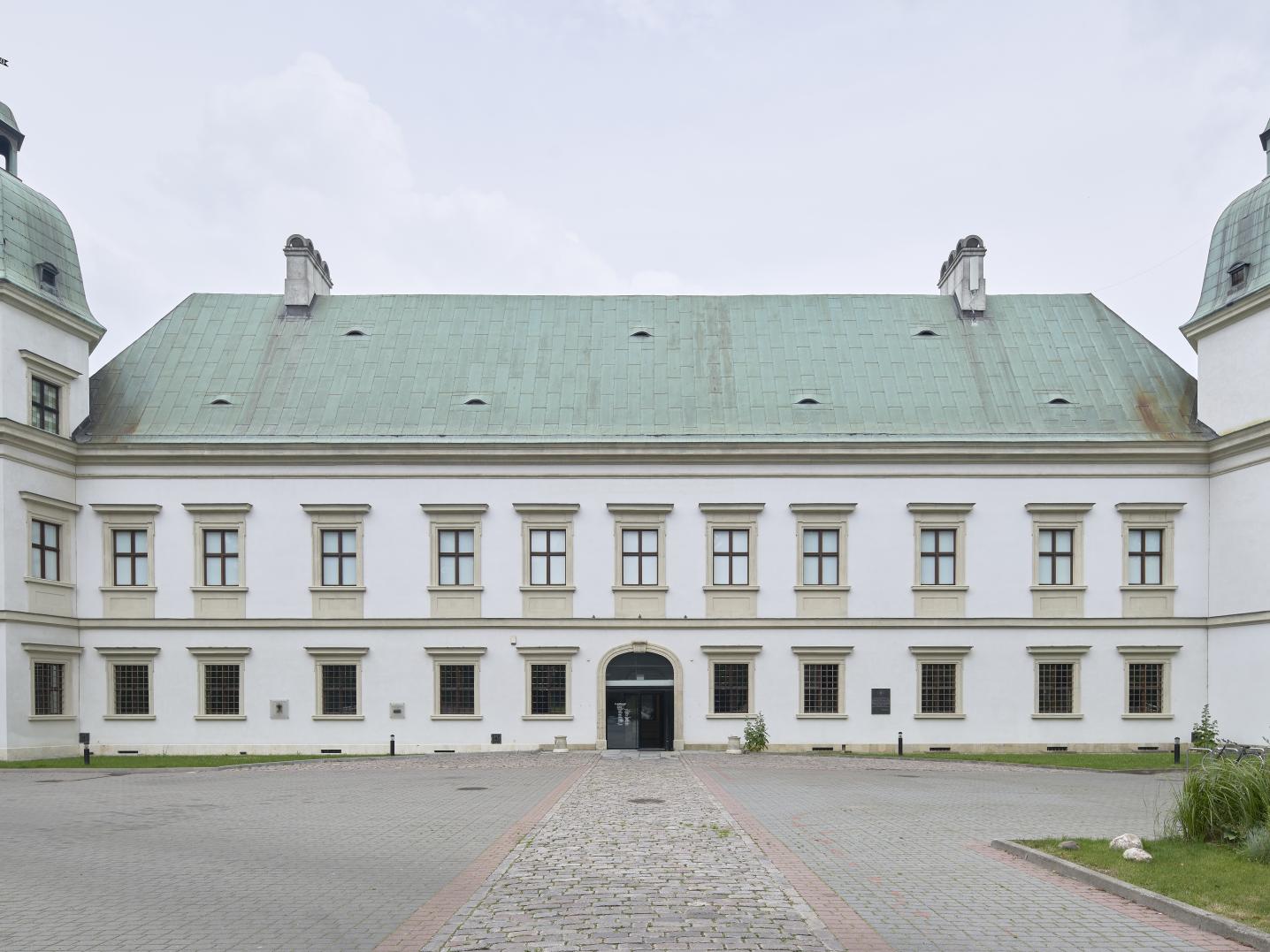
Hybrid: best of both worlds
After two years of lockdowns full of online conferences and talks, we all know how tiring and unsatisfying it can be to listen and talk to people’s faces in little boxes. It’s a challenge for a well-informed moderator to create an opportunity for artists to really connect with each other, instead of just giving a pitch about their artistic practice. Of course, this is more easily achieved when all the speakers are in the same room, but streaming the conversation makes it accessible to a much wider and international audience.
Weighing the advantages and disadvantages of each format, our Morocco Advisor Myriam Sahraoui preferred a hybrid format for her Morocco edition. She realised this after being part of the online Artists in Conversation edition on Germany as a guest speaker, in her role as a theatre maker and cultural entrepreneur at the theatre group Female Economy. Last July, she hosted Artists in Conversation - Edition Morocco: rebalancing fe/male energy, for which she chose the atelier of Female Economy as an intimate setting. In this cosy spot, Female Economy colleagues Adelheid Roosen and Ola Mafaalani conversed with Ghassan el Hakim of the Moroccan musical theatre company Kabareh Cheikhats, who was staying in the Netherlands as an artist in residence at the time.
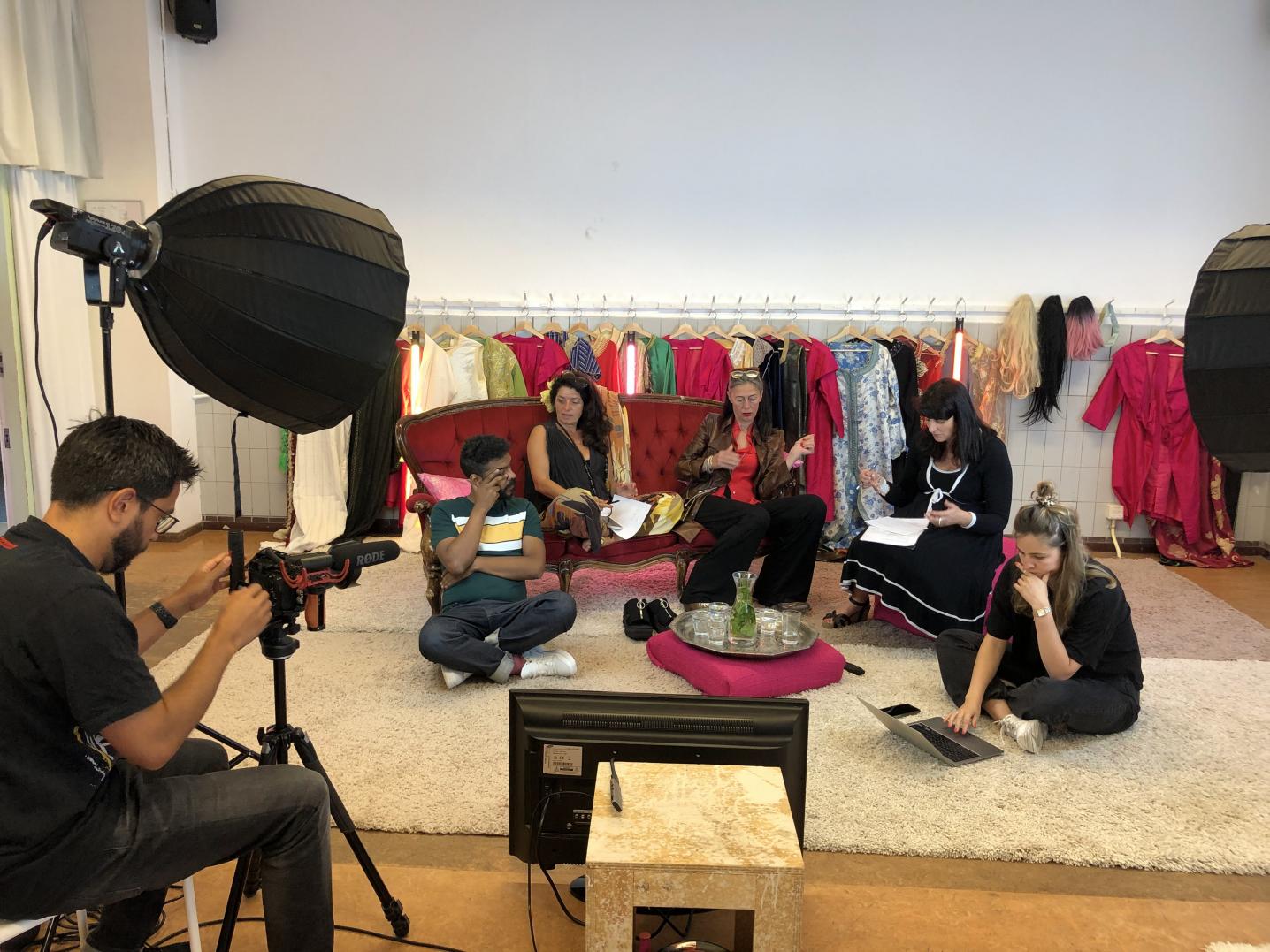
Highlight: performance by Kabareh Cheikhats
At the time of the recording, Kabareh Cheikhats and Female Economy were in the midst of their artistic process together. Sahraoui reflects: "Working together is the best starting point for talking about what it means to cooperate, to be honest about the difficulties you experience and the differences between artistic practices. For instance, artists in Morocco do not have the choice to be an activist or not. Social engagement is not just a decision, it is the only option for an independent artist. In our conversations with artists, we must go beyond recognising differences and similarities between two countries and give priority to the human side of cultural exchange."
Upcoming events
To watch the previous editions, see the links below. DutchCulture is planning to host further live and hybrid editions of the Country Focus and Artists in Conversation programmes. On 28 September, Country Focus: Turkey will take place live at the University of Amsterdam's creative space VOX-POP, as part of our visitors’ programme. To stay updated about this and other upcoming events, make sure to follow DutchCulture on social media (see footer of this page) or subscribe to our newsletter.

